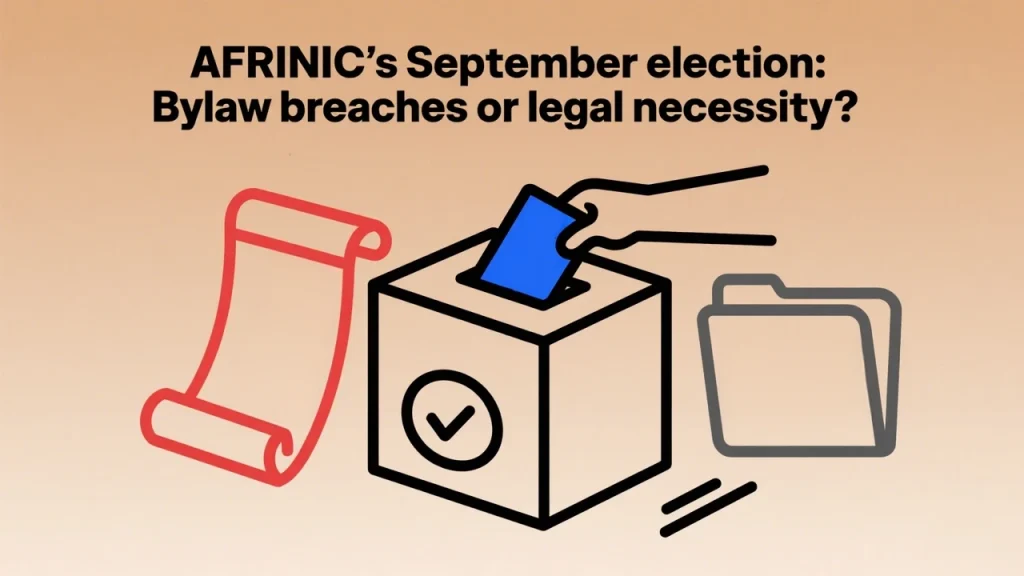- AFRINIC postpones September board election, citing unresolved legal risks and governance voids
- Observers warn the move violates bylaws and deepens concerns over the registry’s legitimacy and operability
AFRINIC delays election amid governance vacuum
The African Network Information Centre (AFRINIC) has postponed its September board election, a decision framed by the organization as a “legal necessity” in light of unresolved litigation and leadership voids. The delay follows the annulment of its previous election held on 23 June, which was scrapped over an unverified proxy dispute. The incident led to the discarding of multiple votes, drawing accusations of procedural instability and disregard for membership participation.
In a recent communication, AFRINIC’s acting management stated that no election could proceed without final legal clarification. They argued that ongoing cases—relating to previous board decisions and election oversight—create risks of invalid outcomes if another vote is held prematurely. Critics have countered that AFRINIC’s own bylaws mandate regular board elections and do not authorise indefinite postponement, even during litigation. The growing tension highlights the collapse of trust in internal checks and reflects an increasingly paralyzed institution.
Also read: Cloud Innovation calls for AFRINIC wind-up after ‘impossible’ election standards
Also read: EXPOSED: The letter that reveals who was really benefitting from AFRINIC’s lawsuits
Legal stalemates reveal structural collapse
AFRINIC’s inability to hold elections under its own framework exposes a deeper structural failure. The decision to cancel the June election, based on one unverified proxy challenge, and now to defer the September vote entirely, has created what many now call an unworkable governance environment. Observers argue that AFRINIC has moved beyond administrative dysfunction and entered a sustained collapse, unable to meet even the most basic operational standards required of a Regional Internet Registry (RIR).
Cloud Innovation Ltd., AFRINIC’s third-largest member, has characterised the current situation as a failed experiment in regional governance. The company has publicly called for the application of ICP-2, not to create a new registry, but to transfer AFRINIC’s responsibilities to an existing RIR such as RIPE or APNIC. Their formal petition demands that ICANN and the NRO begin immediate succession planning, citing AFRINIC’s persistent election failures and legal paralysis as proof that the registry cannot be salvaged.
Tensions have also escalated around ICANN’s role. In December 2024, CEO Kurt Lindqvist oversaw the release of a new ICP‑2‑related document titled Implementation and Assessment Procedures for ICP‑2 Compliance — not an update to ICP‑2 itself, but a separate mechanism granting ICANN the authority to derecognise RIRs. This move was quietly enacted without community consultation, bypassed established bottom‑up processes, and sparked widespread concerns over centralised control.”
The broader crisis reflects a fundamental breakdown of multistakeholder governance in the African internet space. With no board, no election, and no clear path forward, AFRINIC’s future remains uncertain. The registry’s condition now raises a pivotal question for global internet governance: whether regional autonomy is sustainable under current legal and technical conditions

